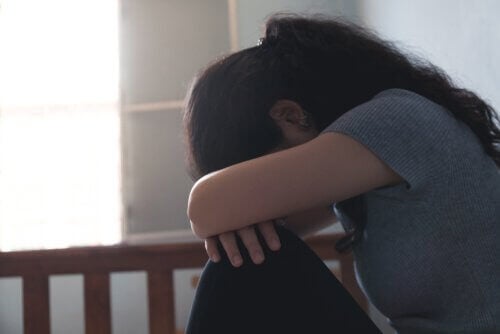“I have a son and I can’t be sad. ” This phrase, which is not one of the most associated with pregnancy, is repeated in the minds of many women suffering from postpartum depression, even if it is not verbalized or expressed.
The connotations of pregnancy do not always meet the expectations of mothers, in our society predominates the image of idealized pregnancy and sessed by the enormous joy that comes with the arrival of a new member to the family.
- Pregnancy and postpartum are moments of great vulnerability for women.
- In them appear not only feelings of joy and happiness.
- But also feelings of anxiety and depressive syndromes.
According to some studies, between 10% and 25% of women develop depressive symptoms after childbirth.
“I know many of you will probably wonder why I would post this photo, but it took me 18 months to get here, 18 months so as not to cry when I look in the mirror, 18 months to finally feel beautiful in my own body again. “
? Alexandra Kilmurray? Mother who suffered from postpartum depression, a pioneer in posting real images of her body after pregnancy on social media.
Depression is a pathological change in mood, with decreased mood and sadness, accompanied by vegetative, emotional, reflective, behavioral and vital rhythms that persist for at least two weeks.
Pregnancy is a stage of high incidence of depressive disorders and postpartum is the period of greatest risk of depression in a woman’s life. According to Jadresic, the most common disorders during this period are postpartum dysphoria, postpartum depression (PPD) and postpartum psychosis (Jadresic, 2005).
Postpartum depression is not just a cause; is the result of a combination of physical and emotional factors. Postpartum depression doesn’t occur because of what the mother did or didn’t do. After childbirth, levels of female hormones (estrogen and progesterone) decrease dramatically.
Reduced levels of estrogen and progesterone cause chemical changes in the brain that can lead to mood swings. Also, many women cannot get enough rest to fully recover from childbirth. Lack of sleep can cause physical discomfort or exhaustion, factors that can contribute to the symptoms of postpartum depression.
“No one warns you about the darkest aspects of motherhood and pregnancy. Doesn’t anyone tell you there will be mental and physical changes after being a mother?. – Alexandra Kilmurray-
Family and friends will probably be the first to notice the symptoms of postpartum depression in a woman who has just given birth, which affects not only the person with her, but also the family nucleus and partner relationship.
People closest to them should understand the mood of these mothers, even if they are happy with the birth of the baby. The family must provide context for women with postpartum depression to speak without fear of being misunderstood.
Expressing the emotions of the situation they are going through, even if they seem inadequate, will help them not feel guilty. Understanding what’s going on is critical to improving the situation, and it depends not only on the person with the disorder, but on the whole family.
If, despite the support of the family, symptoms persist, it is advisable and necessary to call a professional. The first step for these mothers to understand what is happening is related to the acceptance of the emotions they are experiencing, even if they are unpleasant.
When they are forced to recover all the time and the body and mood say otherwise, the situation worsens, causing a sense of frustration.
Applause to all mothers who suffer from postpartum depression and who have to get up every day for their children.

